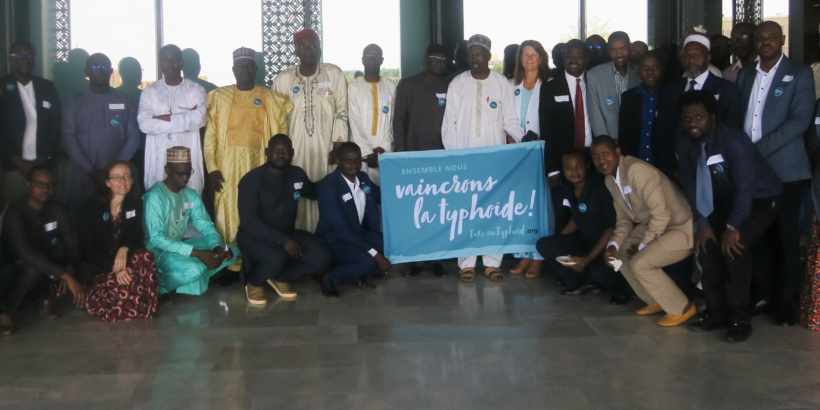To read this blog in French, please click here.
Typhoid impacts an estimated 333 per 100,000 persons each year in Niger – and this is likely an underestimate. Diagnosing typhoid is challenging, especially in countries like Niger where blood culture capability is limited. In addition, children with typhoid often don’t have ready access to care, particularly in rural areas. Delayed treatment can lead to typhoid intestinal perforation (TIP), a late complication of typhoid and all-too-common occurrence in Niger. As a result, typhoid is frequently diagnosed by surgeons in the operating room, when persons are unfortunately already suffering the late consequences of the disease. Recently, surgeons across Niger have united to highlight the devastating impact typhoid has on the people and communities they serve.
On 22 July 2023, surgeons, and other medical professionals from across Niger convened with local and international typhoid experts, academics, and representatives from the Ministry of Health, for the first National Typhoid Conference in Niamey, Niger. The conference focused on surgical complications of typhoid and advocacy for the introduction of typhoid conjugate vaccine (TCV).
TIP across Niger
Surgeons presented data highlighting TIP in their regions. Key takeaways include:
- 858 cases of TIP in Maradi occurred between January 2022 and June 2023.
- 100% of TIP cases in Tahoua require an ileostomy, which may be difficult to manage in rural communities.
- In Maradi and Zinder, 46% of all peritonitis cases are due to TIP, demonstrating the large toll this disease has on operating room capacity.
- High number of TIP cases in urban and rural regions.
- More than 50% of all TIP patients are under the age of 15 years old.
The lack of diagnostic capability makes laboratory confirmation of typhoid nearly impossible and operative findings are not a standard method of diagnosis. As a result, the true number of typhoid cases is unknown. The lack of blood culture confirmation couple with an over-reliance on the Widal test, is likely leading to improper antibiotic usage. The medical community in Niger is extremely concerned with increasing of antimicrobial resistance (AMR). There have already been multiple fluoroquinolone non-susceptible typhoid isolates in pediatric TIP patients in Maradi.
TCVs – an offer of hope
The global community is fortunate to have two safe, effective, and World Health Organization-approved TCVs. With Gavi, the Vaccine Alliance support, many countries, including Niger, are eligible for a one-time vaccine catch up campaign for all children up to 15 years of age and financial support for the introduction of TCV to routine immunization programs. TCV, combined with improved water, sanitation, and hygiene (WASH) initiatives, are a light at the end of the tunnel.
Message from the operating room
Typhoid is a public health crisis in Niger and many countries around the world. The introduction of TCV along with improvements in WASH remain the country’s best tools to significantly control typhoid and decrease the detrimental impacts of this disease. Data from this conference will inform country level decisions on TCV introduction. The surgeons of Niger remain staunchly supportive of TCV and offer a united voice to Take on Typhoid.
Cover photo credit: Center for Vaccine Development and Global Health (CVD) at the University of Maryland School of Medicine.



